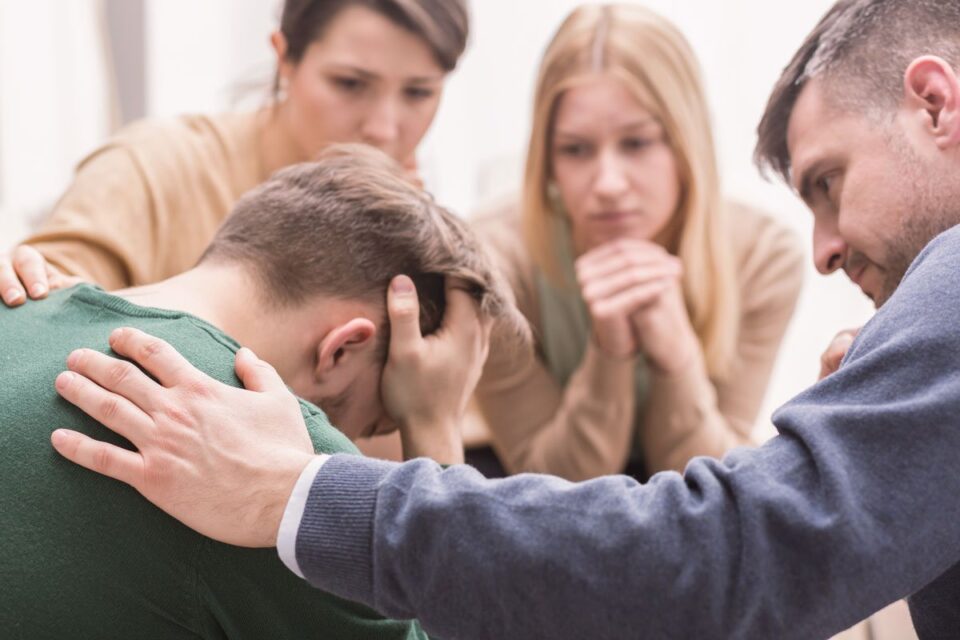Recovery from addiction is about physical abstinence and positive mental and behavioral changes. The way we think influences our behavior, so therapy and counselling are important aspects of addiction rehabilitation treatment and the recovery process. At Gratitude Lodge people can easily get out of all types of addiction.
Table of Contents
What is the importance of drug and alcohol addiction therapy?
There are many benefits to using behavioral therapy for drug and alcohol addiction, and research has shown that some types of therapy are effective in helping people overcome drug addiction.
- Therapy involves people in the treatment of substance abuse.
- Therapy offers people an incentive to stay sober.
- The Therapy changes people’s attitudes and behavior toward substance abuse.
- The therapy improves life skills and teaches people how to manage stress, triggers, and high-risk situations in recovery.
Even if clients do not seek treatment voluntarily, therapy can help overcome individual resistance to treatment and open up the possibility for recovery. There is no single effective drug for addiction, but the National Institute on Drug Abuse (NIDA) supports the idea that behavior therapy and counselling are important parts of the recovery process, although there are many other treatment methods that can be used together to produce positive effects. results achieve lasting results. With Gratitude Lodge people can share their issues and get help from them.
Addiction treatment
There are many types of addiction treatment programs for people struggling with alcohol dependence (AUD) or drug addiction. These are some of the most common types of addiction treatment:
Medical Detox:
Individual therapy during the detox also helps prepare the client for further treatment at a rehabilitation center. The treatment helps for having a great body growth improvement lets the person to come out from addiction.
Inpatient Rehab:
Inpatient addiction rehabilitation provides a high level of structure and accountability for people recovering from addiction. Patients stay in the rehabilitation center during treatment and maintain a structured daily routine that includes individual therapy, group therapy, attendance at recovery group meetings, time for physical activity and eating, recreational travel, and some private time.
Outpatient Rehabilitation:
Outpatient rehabilitation allows clients to stay at home or in a quiet residential facility while they complete treatment. It also allows for more flexibility if the patient needs to continue working or looking after children during treatment. Patients attend several outpatient group meetings each week conducted by licensed care professionals in secure clinical locations.
Online Rehab:
Online rehabilitation programs allow clients to participate in remote video treatment from the comfort of their own homes or while travelling. Conducted by licensed care professionals, video sessions are intended for populations living in remote locations or who are unable to participate in in-person care programs.
Court-Ordered Rehab:
People who are arrested and charged with drug-related offences can go to drug courts, where they can be sentenced to rehabilitation instead of prison. There are strict requirements for these types of programs, but generally, they allow eligible people to receive treatment for an underlying problem (addiction) rather than just going to jail. These programs help reduce recidivism among non-violent drug offenders.
Mindful Living Program:
The Mindful Living Program provides people in recovery with a safe, supportive, drug and alcohol-free living environment. These gender-specific homes provide accountability and peer support along with regular drug testing, home meetings and IOPs. Residents also have access to clinical therapy and additional services to support recovery, including individual recovery programs, certified peer recovery assistance, employment support, educational planning, and voluntary placements.
Aftercare:
The aftercare program provides peer accountability with weekly meetings and support services. Some drug rehabilitation programs are tailored for teens struggling with substance use disorders. These programs address specific youth issues that young people may face during recovery while providing educational and social services to facilitate reintegration into society after rehabilitation.
Holistic Drug Rehab:
Treatment options may include services such as acupuncture, yoga, meditation, or nutritional counselling. While there are many treatment options to choose from, the best type of addiction treatment for a person depends on the severity of the addiction, medication history, financial resources, and other personal circumstances. A doctor, therapist, or licensed addiction therapist can help you create a treatment plan that’s right for you.

